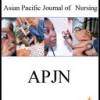Abstract
Title
A CORRELATIONAL STUDY BETWEEN RESILIENCE AND EMOTIONAL INTELLIGENCE AMONG NURSING STUDENTS
Author
Pramilaa R
Email
pramilaravi@yahoo.com
keyword
Emotional intelligence, resilience, Brief Resilience Scale, Wang and Law Emotional intelligence scale, nursing
students.
Abstract
Introduction: High emotional intelligence offer choices to students to gain insight into their goals and cope up with
competitive threats, while highlighting the optimism in the environment and create space for personal achievements. Few
authors presume that resilience is not only hostile to injuries or terrifying conditions but also it is dynamic and beneficial
participation of the person in his surrounding environment and capacity to accomplish biomental equilibrium in family
situations. The objectives of the study were to: i) assess the resilience and emotional intelligence scores among nursing
students; ii) correlate between resilience and emotional intelligence scores among nursing students; and iii) associate the
level of resilience and emotional intelligence with selected demographic variables. Methodology: The research design
adopted was descriptive, correlational study. The population constituted all students in the college of nursing. Convenience
sampling technique was sought. A total of 320 participants were the sample size. The tools utilized for the study were Brief
Resilience Scale (BRS) to measure resilience. Emotional intelligence was measured using Wang and Law Emotional
Intelligence scale. The reliability of BRS was found to be 0.74 and Wang and Law Emotional intelligence scale was 0.71.
Data collection was advanced after obtaining permission from Research Advisory Committee and informed consent from
the participants. The tools were distributed to the participants and self reports were gathered. Data was analyzed with the
help of Statistical Package for Social Sciences (SPSS) version 20. Results: The mean of resilience and emotional
intelligence was 3.036 and 5.371, respectively. Pertaining to levels of variables, majority (51.3%) self reported to have
medium resilience and 48.4% low resilience. And majority 71.9% self reported to have high emotional intelligence and
28.1% had medium emotional intelligence. The correlation between brief resilience and emotional intelligence was not
significant. Conclusion: This finding remains as a useful indicator in designing training programs to foster resilience
among nursing students. And that would enhance in the accumulation of intellectual, social and counteract emotional decay.
Additionally, the strength developed intellectually when resilience binds with EI results in holistic development of
individuals.













